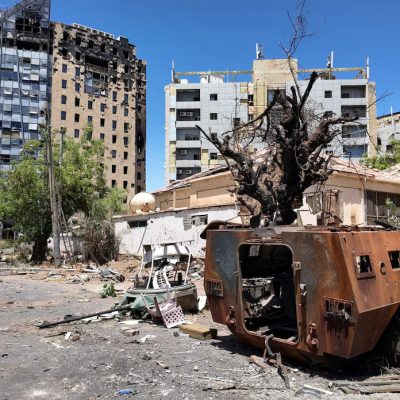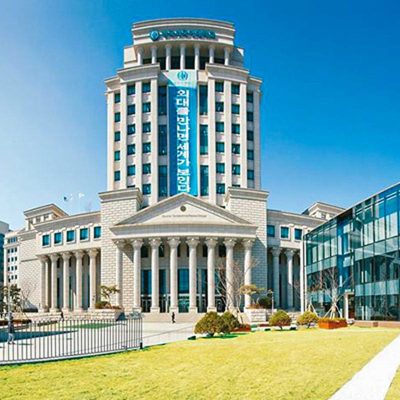MajGen (Ret. Sayed Ghoneim, PhD in Political Science, Chairman IGSDA.
Introduction
It is doubtless that the most important regional rivalry in the Middle East is between the two regional powers: Turkey and Iran. Each of the two countries has a major regional strategy which extends out other regions. Significant activities of both countries are traced in the Middle East, North Africa, Horn of Africa, the Balkans, Central Asia besides others; not to mention the Iranian incursion into South America which is the backyard of the United States.
There is no doubt that terrorism is a threat to any society as it undermines peace, security and the most basic human rights of secured life and sustainable development. No country or region is immune to its impact. It is neither a new phenomenon nor limited to a particular region, nationality, or ideology. Terrorist groups, such as the Islamic State of Iraq and Sham (ISIS), al-Qaeda, the Boko Haram group and others, are composed of many nationalities and sects. Nothing justifies terrorism, but we also have to acknowledge that it does not occur in a vacuum. Unstable societies contribute to its causes.
Definitions and concepts of terrorism
There are many definitions of terrorism including Oxford dictionary which defines it as follows: “The unlawful use of violence and intimidation, especially against civilians, in the pursuit of political aims”.
Although the United Nations has not yet reached an internationally recognized definition, it continues its attempts until the Security Council passed resolution 1566 (2004) on terrorism, which reads as follows criminal acts, including against civilians, committed with the intent to cause death or serious bodily injury, or taking of hostages, with the purpose to provoke a state of terror among the general public or a group of persons or individuals, or to intimidate a population in order to compel a Government or an international organization to do or to abstain from doing any act.
The North Atlantic Treaty Organization (NATO) has defined terrorism as “The unlawful use or threatened use of force or violence, instilling fear and terror, against individuals or property in an attempt to coerce or intimidate governments or societies, or to gain control over a population, to achieve political, religious or ideological objectives”.
Main root causes of the challenges confronting the Arab region societies
Internal causes:
- Bad governments, including failed governments, corrupt governments, or both.
- Neglecting scientific standards in all fields because of the inability of the nation, government and people, to understand and apply international social, institutional, scientific and ethical standards, systems and laws, or to crystallize them in proportion to its conditions, culture and society. Instead, it applies arbitrary interpretations of those norms and concepts in keeping with prevailing cultures.
Regional reasons:
- Regional conspiracy.
- Negative regional impact.
External causes:
- Foreign intervention in the internal affairs of the countries of the region, whether without their will to achieve specific interests and goals, or with their will to change or develop their political, economic, security and social situations without counting the cultural nature of those countries and their capabilities for these changes.
- Regional isolation.
Main root causes of terrorism
Despite the multiplicity and the overlap of the root causes of extremism and terrorism, it can be summed up in social, economic, political and security reasons, as well as international and regional external causes.
From my point of view, the social causes are the increasing demographic pressures, severe deterioration in the provision of public services, the hostile legacy of injustice, the political and institutional marginalization, the deterioration of education and scientific research, the improper understanding and application of religion and its teachings, the spread of extremist ideas in prisons; as a result of violations, torture and deliberate humiliation, the wrong and false inherited cultures and ideologies. Other causes include misusing the social media which expose young people to messages of incitement and extremism, the illegal migration, the movement of displaced persons and refugees in an unorganized or controlled manner, the growing media platforms that incite extremism and terrorism, and the breadth of cultural and civilizational gap between the western countries and other countries in general, and the Arab and Islamic countries in particular.
Economic causes can be summed up in the lack of economic and social opportunities, the variation of economic development rates, the continuous and random flight of creators and productive individuals, poverty and severe economic decline, concentrating the state’s resources in certain institutions and the widespread of unemployment.
Political and security causes include bad governments, the violation of human rights, absence of rule of law, arbitrary and unjust enforcement of laws against the weak, with the exception of special interest groups and businessmen, empowering the security agency to become a state within a state, the growing divisions among elites, leading to a split between ruling elites and the institutions. They also include the intervention of other countries or external political actors, and their insistence to apply freedoms and democracy mechanisms holistically in societies suffering from conflicts and inherited misconceptions using the same thought and mechanisms applied in stable and culturally aware communities, loss of the state legitimacy, proliferation of weapons and world trafficking, as well as civil wars and extended disputes.
Moreover, the external causes, international and regional, include the conflicts of interest to become influential globally and regionally, the failure to reach fair and decisive solutions to conflicts and extended issues in the region, the insistence on the implementation of the policy of double standards mostly by the superpowers, the support of some countries to internationally banned terrorist groups, insisting on hosting, protecting and supporting extremists, as well as wrong strategies to combat violent extremism.
Ramifications
There is no doubt that extremism and terrorism have a profound impact on the countries of the region, the North Mediterranean countries and even all over the world. There are (67) terrorist organizations and groups that have been banned internationally until the end of 2014, including (32) terrorist groups in the Middle East, of which (18) have been banned since 2014., Many of them have declared allegiance to “Dae’esh”; thus, undermining peace and security, sustainable development and brain influence by targeting modern education as a major threat to the ideologies of violent extremism, the increasing number of displaced persons and refugees, and illegal migration, and the spread of cross-border crimes.
On the other hand, terrorist attacks may randomly impact the European demographics due to illegal immigration and exodus of refugees, and the increasing freedom-restricting security measures both for residents of the Middle East and North Mediterranean countries, or for those coming to them, and thus threatening the values and principles of tolerance and freedom, the matter which may force the European countries to tighten measures against Muslim minority, paving the way for recruiting European and American Muslims by the terrorist groups.
Also, the terrorist attacks have an impact on the economic growth which is based on openness and freedom of movement in the European Union (EU) states, in addition to possible counter-reaction by some extreme rightists in Europe, which makes the matter worse, particularly that some countries have a tendency towards isolationism to avoid the negative impact of terrorism.
Main good practices to overcome the rout cause and ramifications of terrorism
Social practices:
- Make sure that local communities have access to basic services, and bolster employment and development through launching economic initiatives.
- Support and enhance rehabilitation and reintegration programs
- Inculcate humanitarian values in the minds of all segments of society through education and media, paying efforts to development of a decent life among the most important priorities of the government.
- Putting clear policies and procedures giving first priorities to education, health, research and creativity as pillars of the advancing civic society.
- Integrating the marginalized minorities (ethnic, religious, etc.), allowing for their active participation in society by including them in governmental and security positions.
- Establish an independent institute responsible for adopting innovators and talented artists giving them open opportunities of participation with creativity and arts.
- Improve the means to empower women and youth in the society.
Economic practices:
- Implementation of combined educational, employment, and financial strategies to guarantee equity and equality in job opportunities, remuneration for work and jobs in accordance with credentials and expertise without exception.
- Eradication of corruption within government institutions, elimination of bribery, nepotism and influence peddling through the application of strict measures of transparency.
- Focusing on research and development and encouraging creativity, providing the outstanding opportunities for creatives and inventors in all fields.
Political and Security practices:
- The separation of powers in a democratic state (Legislative or Parliamentary, Judiciary and Executive Authorities), the purpose of the set constitutional separation of state power.
- A strict automation imposing political transparency and accountability on the ruling faction to ban corruption, and to ensure that relatives and family members of the president and his government officials are not involved or interfering in their responsibilities or gaining benefits from exploiting their influence.
- Eradication to the prevailing practice of inheritance of political jobs, government offices, influential diplomatic posts and joining the judiciary.
- Reconstitution and reforming the security institutions such that they apply the rule of law and serve the citizens of the country.
- Establishing/ Concentrating on intensive training to social police concerning human rights and dignity.
- Administrative restructuring of independent regulatory bodies, improving their performance and suitability to ensure disproving of corruption and fair implementation of the justice and the rule of law.
- Empowerment of women and youth by increasing their quotas in the Parliament and higher governmental positions.
- Putting prompt justice into force, with highest priorities to the cases of the mainly political and administrative corrupted figures, marginalizing them away from the political arena, keeping the experienced figures known with impartiality and integrity to support youth empowerment administratively and politically.
- Encouraging people to practice their political rights; not allowing political abduction, violence and torture.
- Ensure equality of all state intuitions; no privilege to any institution comparing with others.
- Increase capacities to monitor the cyber space
Research and Information Sharing practices:
- Establish effective communication channels with the aim of encouraging and improving, where possible, information sharing and cooperation between government and non- government actors, including academics and private sector researchers that operate at a local and regional levels.
- Encourage information sharing through the increased involvement of regional and international institutions.
- Acknowledge and consult Non-Governmental Organizations or Civil Society Organizations as a relevant source of knowledge and on-the ground expertise.
- Intelligence sharing should be prioritized, encouraged and facilitated among national governmental agencies.
- Encourage the creation, maintenance and use of regional and international databases.
- Support the further development of private and public-sector partnerships to assist in combatting the nexus, including, but not limited to, the field of financial investigation.





